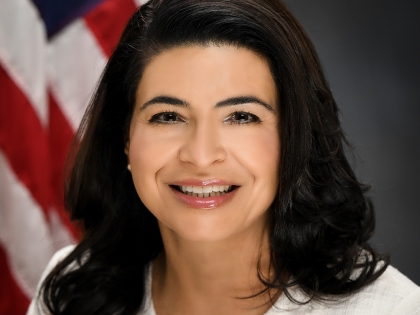
NY State Lawmakers Float Creation Of 5G Safety Commission

Two New York state lawmakers have introduced legislation to establish a commission charged with examining the health and environmental impacts of wireless radiation emitted by 5G technology and other wireless antennas.
The temporary commission, proposed by Sen. Anna Kaplan, D-Great Neck, and Assemblyman Tom Abinanti, D-Greenburgh, would consist of 15 members including health experts, environmental scientists and independent electromagnetic radiation researchers.
Under the legislation, the panel would present an initial report on its findings to the state legislature by June 2022 and a final report the following December.
The commission would be disbanded a month after its final report, according to the proposed bill. Kaplan's bill was introduced on March 23, and the companion bill in the lower chamber was introduced a week earlier.
The key sponsors of the legislation could not be immediately reached Monday for comment.
Doug Wood, director of nonprofit Americans for Responsible Technology — a coalition of more than 160 groups nationwide that advocate for the safe and responsible use of technology — said if the legislation becomes law, the state would "understand the full range of risks inherent in the deployment of 5G antennas in neighborhoods."
"This kind of involuntary exposure to a scientifically-proven health hazard deserves the scrutiny this commission will provide," Wood said. "I applaud Senator Kaplan and Assemblyman Abinanti for taking this action to protect public health and the environment."
According to the group, New Hampshire in 2019 became the first state to introduce and pass legislation to study the health and environmental effects of evolving 5G technology.
In November 2020, a commission set up by the New Hampshire law released what ART called a "watershed report" with several recommendations to help reduce public exposure to wireless radiation, raise public awareness of potential health risks and improve monitoring of wireless radiation emissions.
The legislation from New York lawmakers follows January's oral argument before the D.C. Circuit in which a panel of judges appeared skeptical of the Federal Communications Commission's findings that cellphones and other connected devices pose no risks to human health. U.S. Circuit Judge Robert L. Wilkins questioned whether the FCC properly cited two working groups under the U.S. Food and Drug Administration's umbrella that are supposed to monitor the possibility of wireless harms, saying the FCC failed to explore how these bodies contributed to the record and to substantiate whether they exist at all.


